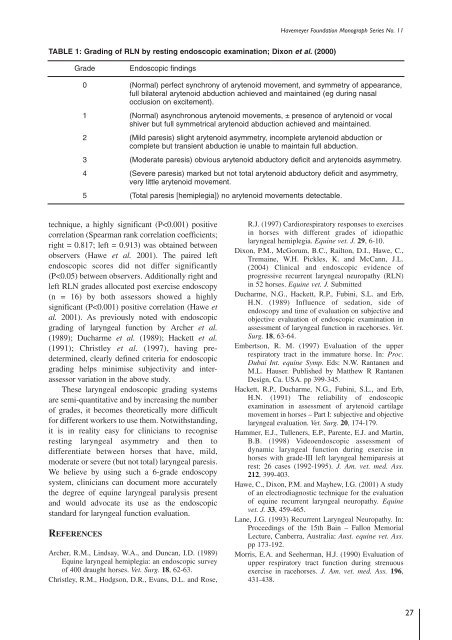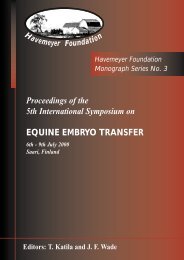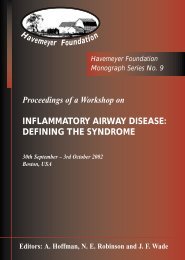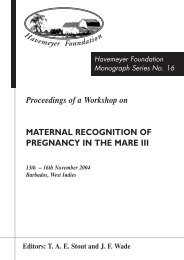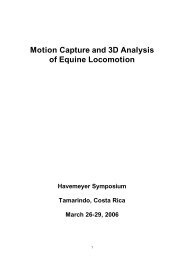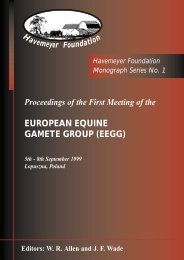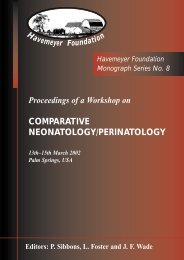Proceedings of a Workshop on - The Havemeyer Foundation
Proceedings of a Workshop on - The Havemeyer Foundation
Proceedings of a Workshop on - The Havemeyer Foundation
Create successful ePaper yourself
Turn your PDF publications into a flip-book with our unique Google optimized e-Paper software.
<strong>Havemeyer</strong> Foundati<strong>on</strong> M<strong>on</strong>ograph Series No. 11<br />
TABLE 1: Grading <str<strong>on</strong>g>of</str<strong>on</strong>g> RLN by resting endoscopic examinati<strong>on</strong>; Dix<strong>on</strong> et al. (2000)<br />
Grade<br />
Endoscopic findings<br />
0 (Normal) perfect synchr<strong>on</strong>y <str<strong>on</strong>g>of</str<strong>on</strong>g> arytenoid movement, and symmetry <str<strong>on</strong>g>of</str<strong>on</strong>g> appearance,<br />
full bilateral arytenoid abducti<strong>on</strong> achieved and maintained (eg during nasal<br />
occlusi<strong>on</strong> <strong>on</strong> excitement).<br />
1 (Normal) asynchr<strong>on</strong>ous arytenoid movements, ± presence <str<strong>on</strong>g>of</str<strong>on</strong>g> arytenoid or vocal<br />
shiver but full symmetrical arytenoid abducti<strong>on</strong> achieved and maintained.<br />
2 (Mild paresis) slight arytenoid asymmetry, incomplete arytenoid abducti<strong>on</strong> or<br />
complete but transient abducti<strong>on</strong> ie unable to maintain full abducti<strong>on</strong>.<br />
3 (Moderate paresis) obvious arytenoid abductory deficit and arytenoids asymmetry.<br />
4 (Severe paresis) marked but not total arytenoid abductory deficit and asymmetry,<br />
very little arytenoid movement.<br />
5 (Total paresis [hemiplegia]) no arytenoid movements detectable.<br />
technique, a highly significant (P


